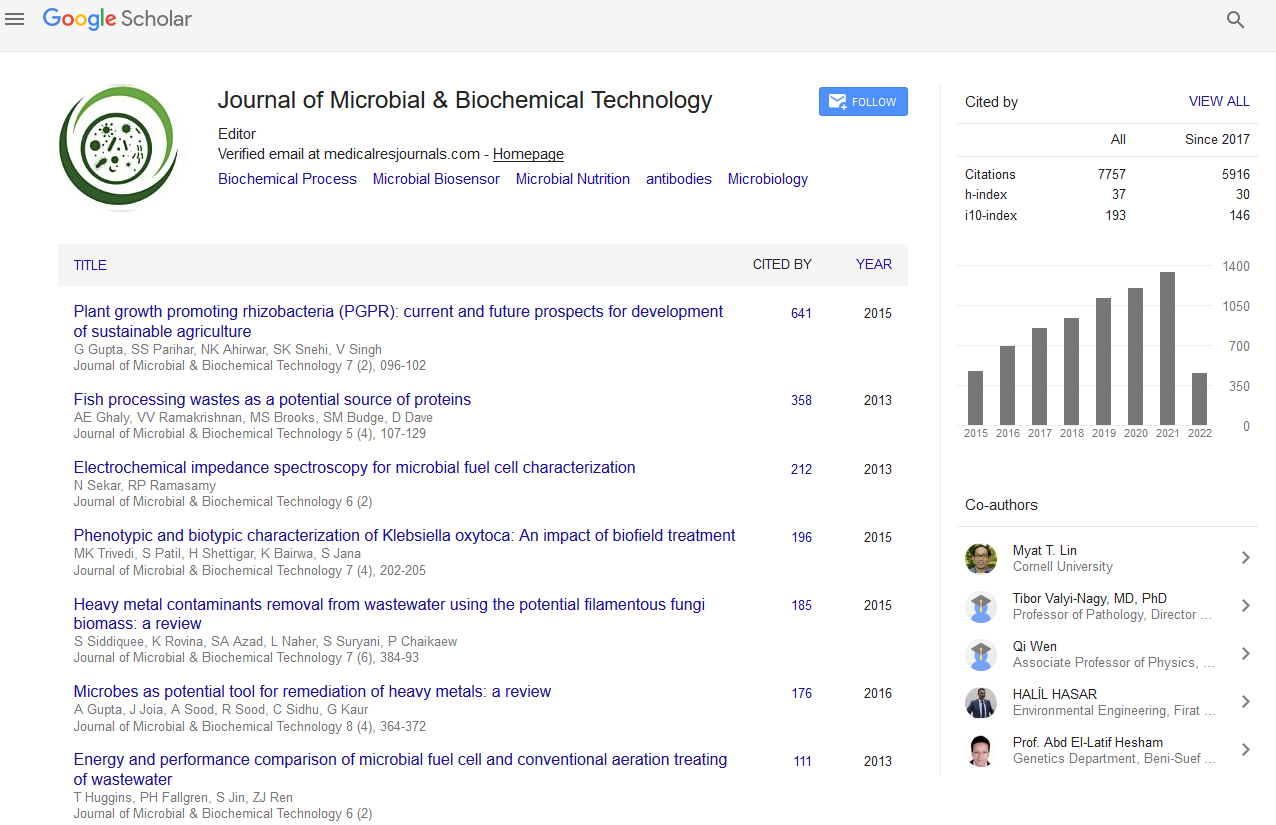PMC/PubMed Indexed Articles
Indexed In
- Academic Journals Database
- Genamics JournalSeek
- Academic Keys
- JournalTOCs
- China National Knowledge Infrastructure (CNKI)
- Scimago
- Access to Global Online Research in Agriculture (AGORA)
- Electronic Journals Library
- RefSeek
- Directory of Research Journal Indexing (DRJI)
- Hamdard University
- EBSCO A-Z
- OCLC- WorldCat
- SWB online catalog
- Virtual Library of Biology (vifabio)
- Publons
- MIAR
- University Grants Commission
- Geneva Foundation for Medical Education and Research
- Euro Pub
- Google Scholar
Useful Links
Share This Page
Journal Flyer

Open Access Journals
- Agri and Aquaculture
- Biochemistry
- Bioinformatics & Systems Biology
- Business & Management
- Chemistry
- Clinical Sciences
- Engineering
- Food & Nutrition
- General Science
- Genetics & Molecular Biology
- Immunology & Microbiology
- Medical Sciences
- Neuroscience & Psychology
- Nursing & Health Care
- Pharmaceutical Sciences
Anti-anxiety effects of lactic acid bacteria via regulation of gut microbiota and metabolic alteration in chronic stress-induced anxiety mice
Joint Event on 4th World Congress and Expo on Applied Microbiology & 2nd International Conference on Food Microbiology
November 29-December 01, 2017 Madrid, Spain
Jiseon Lee and Saehun Kim
College of Life Science and Biotechnology - Korea University, South Korea
Posters & Accepted Abstracts: J Microb Biochem Technol
Abstract:
Background: The realization that stress alters brain-gut interaction which is known to play a critical role in health and disease, including neuropsychiatric disorders, is rapidly advancing. Here we tested whether fermented Maillard reaction product (f-MRP) treatment modifies behavior across domains relevant to anxiety, depression, cognition, stress response, and social behavior. Furthermore, the fermentation of MRP by Lactobacillus rhamnosus 4B15 synergistically enhanced the above activities compared to those of unfermented MRP. Methods: C57BL/6J male mice were administered. In addition, casein, MRP, f-MRP or normal diet-treated mice were also exposed to chronic psychosocial stress, and behavior was assessed. Murine restraint stress (RST) is regularly employed in the study of behavioral and biological symptoms associated with depressive disorders. Compared to baseline, the mice exposed to grid floor housing changed the amount of time spent in the open field, rotarod, light & dark box, elevated plus maze, forced swimming, novel object recognition 24 hr and spatial recognition 24 hr behavior. The f-MRP treated mice had significantly longer immobility duration in the open field test and increased their time in the center zone episodes between Cas and MRP. Mice treated with f-MRP for more than 11 weeks exhibited significantly decreased anxiety in the 7 types of behavior test, but these mice exhibited similar level of anxiety in few behavioral tests. Conclusions: Chronic stress promoted depressive-like behavior throughout the 8 weeks stress period and these depressive-like complications will bring about gut barrier dysfunction. These results suggest that glycation-induced modification of casein and fermentation correlated strongly with the enhanced functional properties. L. rhamnosus 4B15 strain reduces stress-related anxiety by normalizing behavior via a synergistic interplay with the MRP compound and/or metabolites contained in this product. Recent Publications 1. Kirsten Tillisch, Jennifer Labus, Lisa Kilpatrick, et al. (2013) Consumption of fermented milk product with probiotic modulates brain activity. Gastroenterology 144:1394-1401. 2. Lieve Desbonnet, Gerard Clarke, Alexander Traplin, et al. (2015) Gut microbiota depletion from early adolescence in mice: Implications for brain and behavior. Brain Behavior and Immunity 48:165�??173. 3. R M Stilling, T G Dinan and J F Cryan (2014) Microbial genes, brain & behaviour - epigenetic regulation of the gutbrain axis. Genes, Brain and Behavior 13(1):69�??86. 4. A Ait Belgnaoui, A Colom, V Braniste, et al. (2014) Probiotic gut effect prevents the chronic psychological stressinduced brain activity abnormality in mice. Neurogastroenterol Motil 26:510�??520. 5. Dabo Xu, Jun Gao, Merritt Gillilland III, et al. (2014) Rifaximin alters intestinal bacteria and prevents stress-induced gut inflammation and visceral hyperalgesia in rats. Gastroenterology 146(2):484�??496.
Biography :
Jiseon Lee has a Bachelor's degree in Food Engineering from Dongguk University in Korea. During the Undergraduate course, she has prepared a thesis that measured the benzopyrine content in fried food. Currently, she is majoring in Food Microbiology in her Master's course at Korea University, and studying probiotics and diseases. Probiotics are being studied to prevent not only human diseases but also aging and prevention of aging. Research on probiotics is essential for the development of food engineering, food industry and food microbiology.


